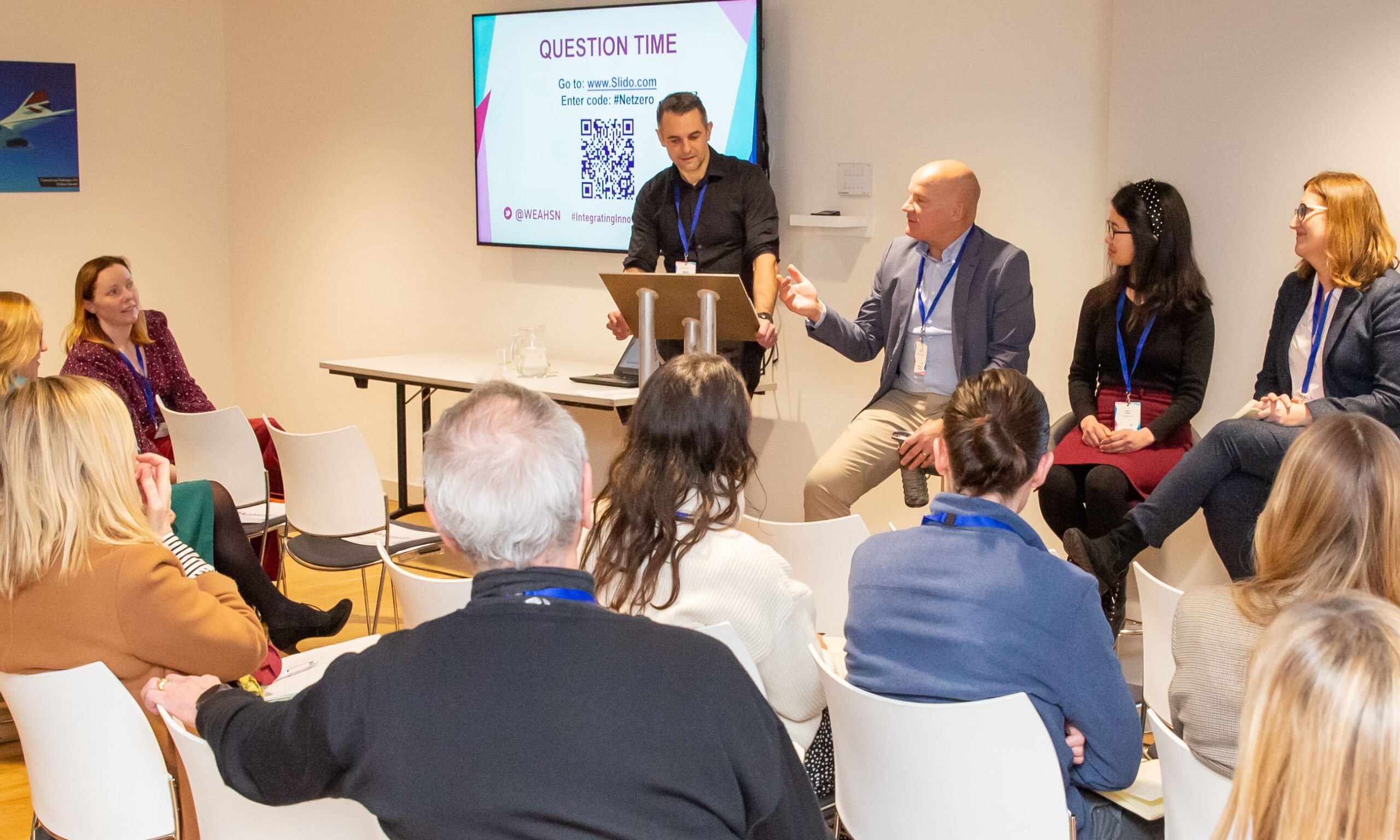
The NHS is responsible for 25 million tonnes of carbon dioxide each year, and the NHS has become the world’s first national health system to commit to becoming net zero.
On 9 March, our Integrating Innovation conference featured a session dedicated to delivering a net zero NHS. The panel discussion, chaired by Pete Waddingham, Net Zero Lead for the AHSN Network, explored net zero from the perspectives of innovators, researchers, and NHS partners.
The session highlighted the collaborative nature of work in the AHSN, bringing together academia, industry, and the NHS. The speakers addressed different perspectives relating to net zero, including the importance of leadership, building a sense of urgency, and communication. They discussed the challenges of data and the link between health inequalities and implications for the patients and people we serve.
Jinghui (Helen) Liang, Chief Technology Officer of LabCycle, spoke about the enormous amounts of single-use plastic from research and healthcare that are sent to landfills or incineration. Her company offers a novel technology combining chemical and mechanical decontamination for the safe recycling of hazardous plastic waste and producing lab/medical-grade consumables made from high-grade recycled plastics.
Nicky Philpott, Head of Sustainability and Net Zero at NHS England South West, spoke about the NHS’s commitment to becoming net zero and the importance of engaging staff and patients in the process, giving examples of good practice in the region. Nicky previously led NHS work on COP26, ensuring that health was recognised as a driver for climate action.
Paul Chivers, Head of PPE (Personal Protective Equipment) Innovation and Sustainability at NHS Supply Chain, talked about his team’s work in reducing glove usage across health and social care. This includes the glove Massive Open Online Course (MOOC), informing glove users about the appropriate use of gloves and reducing inappropriate use. He introduced us to the concept of the ‘Sheffield Head’ and why PPE designed for the construction industry can be challenging to use in NHS settings.
The session was engaging, with lots of questions from the audience. The panellists were able to provide valuable insights and perspectives on the challenges faced by the NHS in achieving net zero. Thank you to everyone who took part.
Overall, the session highlighted the importance of environmental sustainability in healthcare innovation and the collaborative efforts needed to achieve a net zero NHS. With continued efforts, it is hoped that the NHS can successfully become a net zero system, setting an example for healthcare systems around the world.
Posted on March 29, 2023


